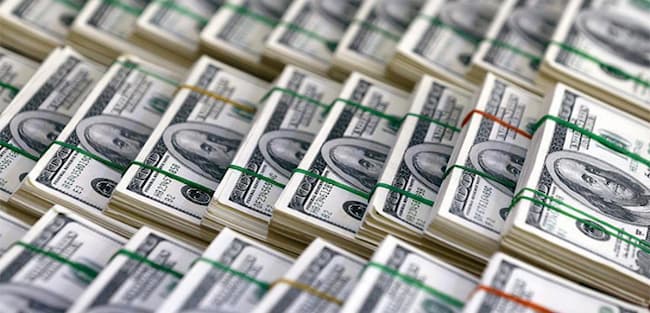Nigeria’s gross foreign reserve balance has risen to $37.394 billion, the highest level since October 2022, according to government data. Nigeria’s foreign exchange reserves climbed by $451.73 million, marking the third week in a row that US dollars have flowed into the country.
The growth in FX positions was aided by higher crude oil output notwithstanding a negative price fluctuation in the global commodities market. According to Broadstreet analysts, the country’s foreign reserve position has increased due to inflows from recent $900 million domestic US dollar bond receipts.
Some economists believe that as long as the US dollar is scarce, the banking industry will be subject to investor mood. Despite an increase in external reserves, the Nigerian native currency, the naira, has remained under pressure, with the exchange rate settling at N1,541 per US dollar in the official window on Friday.
Spot rate had crossed N1600 on a sustained basis amidst price discovery push by the authority. Nigeria’s finance minister, Wale Edun, recently said that the nation has been receiving more than $2.3 billion in net FX inflows into the country.
Edun told a forum last week that there has been a net inflow in the first seven months of this year of about $2.35 billion every month, adding that this increase has played a key role in stabilizing the naira.
Nigeria has struggled to maintain hydrocarbon production levels over the past several years. High incidents of theft and vandalism are the primary causes of dips in oil production, according to analysts.
Nigeria’s crude oil production increased by 3.44% month on month to 1.352 million barrels per day (mbpd) in Augusts from 1.307 million barrels per day in July 2024.
The Organisation of the Petroleum Exporting Countries (OPEC) said in its monthly oil market report that the average daily crude production rose marginally by 45,000 barrels per day in the period. Quoting information obtained through direct communication with the Nigerian government, OPEC’s report indicated that output for July was 1.30 mbpd.
In a note, S&P Rating said technical and regulatory issues, as well as divestments by some large international oil companies, are tied to environmental considerations, and are also deterring new investments. However, a series of projects is in the pipeline, and the Nigerian National Petroleum Company is confident that volumes will increase in the near future.
Crude and condensate production levels improved slightly to 1.46 mbpd on average over 2023, partly due to improved security surveillance tied to the establishment of a new security task force. Via the task force, oil producers have enhanced collaboration with government and defense forces, who are taking a more zero-tolerance stance to theft and vandalism.
As a result of these efforts, alongside some investment in new production, S&P analysts anticipate oil production to slowly recover to 1.52 mbpd in 2024, but remain below Nigeria’s new and reduced OPEC quota of 1.58 mbpd (the quota excludes condensate production).
An overhaul of the governance structure and fiscal terms in the oil sector under the Petroleum Investment Act, should, over time, unlock further investment in the hydrocarbon sector, despite environmental considerations, the global rating agency said.












